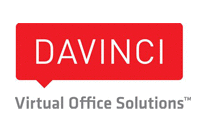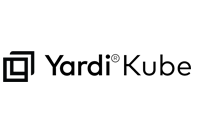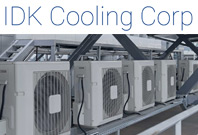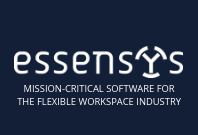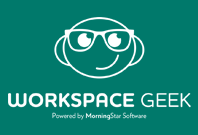9/14/2017
Taking Stock Of A Serviced Workspace’s Greatest Trump Card … And Accurately Assessing Its Greatest Threat
By Ray Lindenberg, Chief Consultant at Winning Workspaces Hospitality Group
The Operators of Serviced Workspaces such as Business Centers and COworking Spaces have it all wrong by harboring the misconception that the greatest threat to their business and livelihood are other competing Serviced Workspaces that move into their market or neighborhood. On the contrary, a little competition is always good to keep a business -- a well-run business dedicated to being top-notch, that is -- honest and on its toes in a competitive marketplace; forcing it to continually find the better widget … the better way forward to maintain a bigger chunk of the local, available market and outpoint its rivals. So bring on the WeWorks, Reguses and any other Serviced Workspace providers. Game on. Entrepreneurial Darwinism rocks!
Furthermore and counterintuitively, having another, or better yet, many other Operators come into your zone is often a blessing in disguise by helping energize your market and perk up your prospect traffic flow -- serving to reinforce and legitimize your local area as a ‘must-be’ hot place at which to seriously consider having a Serviced Workspace. Simply put, entrepreneurs want to be around clusters teeming with other enthusiastic entrepreneurs. A saturation of enterprises is the cornerstone of COworking, plus a natural attraction to fledgling, as well as established, business owners who see more opportunity and dollar signs, the more upstarts and go-getters that they are in the midst of.
The Truer Threat
While having competitors in the neighborhood is certainly worthy of keeping an eye on so that they don’t go chipping away at your market share uncontested, there is actually a truer threat to contend with, other than experiencing an increase of 3rd Place Serviced Workspaces such as another Business Center or COworking Space in your backyard. More foreboding is the prospect of greater numbers of people deciding that working exclusively from home is perfectly suitable, if not preferable, because of all the advantages they perceive.
Let’s face it … the allure and wisdom of many opting to work from home is a tall order for Serviced Workspace Operators to compete with. Many of us do it already -- working from home from time-to-time, that is -- because it’s convenient to do so; so why should we expect others to forego home-working given that all the benefits of doing so creates a pretty strong case in favor of it? Saving time and money on commutes and traffic jams … instantly being able to jump on a pressing issue or workload item while barely out of your pajamas … having the luxury to take a breather or nap, or tend to a personal, work-life item or emergency instantly … not having to dress up and prim yourself before heading out to the rat-race … being able to eat when and what you want, cheaper and spontaneously by working out of the house … the list of advantages of home-working is endless.
Why The Dramatic Shift To Home-Working?
People work from home to a greater degree than ever before, simply because they can. Technology enables it, as does changing work-live attitudes and more employer standards and policies are permitting remote working. The evolving telecommuting work-way trend is getting tremendous mainstreaming traction. Whereas before, in many jobs and businesses, having to work from a central office was a requirement, often so that the company could keep an eye on you to make sure you were producing during the hours on your time-sheet, many (not all) employers are much more into a bottom-line deliverables mind-set these days that loosens the ‘where’ that work gets done, and instead favors the measurable ‘what’ that gets done.
Often, this nod to telecommuting and nomadic remote working saves a company plenty of dough, since a mobility-based work model off-sets the need partially or entirely for an in-house headquarters plus office provisions and its formidable fixed costs; and also shrinks the requirement for layers of on-site staffing to monitor productivity levels. There’s no longer such a pressing need for many companies to rent, build-out, fully furnish, broadly staff, or provide enclosed individual offices that are less used than ever before in today’s agile ‘OK-to-work-elsewhere’ work environment, as long as you deliver the goods; a welcome reality that is not lost to an organization’s delighted owner(s), management and bean-counters. Why spend money on more expensive real estate or rental costs for private offices of diminishing use for executives and managers, when the smaller footprint of an open plan touchdown space with hot desks for workers to pop in and out of does the trick of producing the required results quite well, and is a welcomed win-win in many instances?
Furthermore, there are many more freelancers and solopreneurs out there that comprise a population that’s exploding statistically that (unlike in olden times when a full-time, private office was a must if they want to be treated and respected as owners of a legitimate, unquestionably stable and solvent business), no longer feel the pressure and must-ness of having to be based out of a full-time private office. In fact, operating lean and thrifty by not angling for an impressive, status-solidifying office, is gaining lots of street-cred, if not reverence, in the view of many businesspeople that increasingly deal with outsourcing, freelancers and solopreneurs, plus employees on the go of larger companies who are signing-on at Serviced Workspaces out of convenience, and who regard working lean-working as a virtue and symbol of an efficiently performing business and entrepreneur.
Trumping The Threat
So if the mainstreaming of working exclusively from home is such an emerging, existential threat to Serviced Workspaces, what’s an Operator to do? The answer is to take stock of your trump card that counters the compelling stack of advantages of home-working … to amplify and attack the Achilles heel that is inherent in dedicated home-based working, and turn your solution to those points of pain to your own significant advantage. The ‘pain’ that many strict home-workers eventually, if not currently, face is the loss of one’s competitive and entrepreneurial edge when the inevitable trappings of home-borne interruptions and procrastination start sinking in and eating away at what would normally be a more productive day, if one were working at an away-from-home workplace, which is the practice that most of today’s multi-generational workforce grew up experiencing and matured their careers under.
Excessive home-generated procrastination and listlessness, when it comes to tackling the work at hand, can become an advancing habit and debilitating condition, and afflicts many home-workers who simply lack the discipline to be sufficiently productive and avoid the natural stream of interruptions, plus the temptation to slide their workloads and priorities, because working casually from home and blowing off required work becomes way too excusable and easy. For some it gets even worse -- sometimes plunging themselves into a state of malaise, demotivation and despair, and in extreme cases, a feeling of functional paralysis. It’s beyond simply becoming lazier -- it’s a condition of surrendering one’s normal and required work ethic and routines, that at times manifests as a workday in search of, and welcoming, distractions and reasons to continually put-off what would normally be a more instant, slam-dunk completion of critical work at hand.
This condition is akin to writer’s cramp … the hitting of a wall and feeling of emptiness and sometimes hopelessness when a writer feels he or she cannot soldier on with a literary mission or assignment. Whether the distraction is the result of excess TV viewing; gamer pursuits; spending excessive, frivolous conversation-time with friends and family; or turning attention to other sometimes much lesser priorities -- exclusively working from home is not for everyone, and arguably, barely for anyone. That’s where Serviced Workspace Operators need to be ready to jump in and save home-workers from themselves by painting the picture of both sides of the equation, and offer the practical, cost-effective solution of some sort of day-office, virtual office, or hourly Touchdown Space, perhaps as part of an ongoing corporate identity/address plan … or an economical serviced micro office solution for those that still require the complete package of a full, private, serviced office identity.
Keeping Your Eyes On The Greater Challenge, The Prize, And Your Brilliant Solutions
Just as with all businesses and industries, you need to carefully assess and be clear on the trends and true threats to your success, while being Johnny-on-the-spot to address the points of pain and pitfalls that you provide the sparkling answers for. The more successful Serviced Workspaces consider losing market share to droves insisting on working from home is the bigger threat … to them competitors are not menaces but triggering mechanisms that force them to learn and think of ways to continually be better … and they are clear that offering erstwhile home-committed workers professional workspace alternatives that go hand-in-hand with their work-from-home preferences, on a monthly, contracted or as-needed basis -- and that sustains their competitive edge and derails their tendency to fall into bad, home-enabled habits that lead to excessive procrastination and malaise, is their strong suit and centerpiece of their winning formula as a professional Serviced Workspace.
Make sure your marketing and sales pitch satisfactorily reflects and emphasizes in some manner the inevitable edge-dulling, sluggishness, procrastination and other points of pain that all home-workers surely have already, or will experience -- along the goldmine of a solution that you’re sitting on which allows them the freedom to benefit from the best of both worlds -- the efficiencies, thriftiness and flexibility of working both from home, and when needed, from the professional Serviced Workspace that you can offer as the home-away-from-home for their dream business, or as their job’s remote-working home base.





















